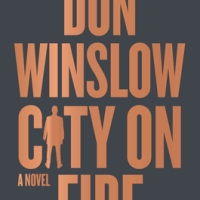#SPFBO Review: The Path of Flames by Phil Tucker
Phase 2 of The Self-Published Fantasy Blog-Off 2016 is officially underway! For the six-month period from November 1, 2016 to the end of April 2017, we will be reviewing the ten finalists chosen by the blogger judges from the first phase of the competition. For full details and the list of books, see our SPFBO 2016 page.
 The Path of Flames by Phil Tucker
The Path of Flames by Phil Tucker
Mogsy’s Rating: 4 of 5 stars
Genre: Fantasy
Series: Book 1 of Chronicles of the Black Gate
Publisher: Phil Tucker (May 11, 2016)
Length: 501 pages
Author Information: Website | Twitter
If you’ve been following along with the progress of this year’s SPFBO competition, then I don’t have to tell you, 2016’s crop of finalists all look incredible, and of the top ten books remaining in this second phase, one of the ones I’ve looked forward to reading a lot is Phil Tucker’s The Path of Flames. From its description, I had a feeling this would be a novel right up my alley—epic fantasy with a bit of an old-school feel, featuring a standard secondary world wracked with war and dark sorcery while courageous heroes go head-to-head with dastardly villains. There’s a certain kind of comfort and pleasure I take from reading stories like these, mainly because I know that at the end of the day, I’ll enjoy myself no matter what happens. And sure enough, I had a blast with this book.
In typical fashion though, The Path of Flames opens with a battle scene. Still, what a battle! This first chapter also introduces us to one of our main characters, a young Bythian squire named Asho fighting on the side of Lord Kyferin and his famous Black Wolves. However, the enemy’s unexpected use of foul magic leads to tragedy, and Asho is knighted in a twist of fate, tasked to return home alone to tell his Lady Iskra Kyferin that her husband and all his men have all been slaughtered on the battlefield.
Upon receiving the news, Iskra reacts solemnly but is secretly pleased; her husband had not been a good man in life, having abused Iskra and Asho both. But Lord Kyferin’s daughter Kethe is heartbroken, having idolized her father, even going as far as to train secretly as a knight in order to follow in his footsteps. With Lord Kyferin now dead though, this does spell trouble for everyone. Almost all the Black Wolves have perished, leaving the castle defenseless and Iskra no choice but to shore up her remaining forces and seek out new allies. Unfortunately, news of her husband’s death has spread and the vultures are already circling. Despite Iskra’s efforts to protect her people, a sudden betrayal ends up destroying her carefully laid plans, plunging her and all those loyal to her into danger.
As you can see, the story encompasses many of the traditional elements and conventional tropes found in fantasy, though to leave it at that would also be simplifying things and not giving this book the credit it deserves. While I can see the influence of genre classics and fantasy role-playings games on the author’s writing, Phil Tucker does have a few surprises up his sleeve, putting some fresh spins on familiar ideas.
He’s done a phenomenal job on his characters, for instance, creating fully developed backstories for them. Take Asho, whose Bythian heritage makes him the target of scorn in this society that worships the Ascendancy, a religion that divides humanity into a caste system. Lord Kyferin may have plucked him from his homeland as a child, raising him in his own household and even making him a squire, but everyone can see these acts for the empty gestures that they are and still look upon Asho with distaste for being in the lowest “tier” of the Ascendancy. Then there’s Kethe, a young noblewoman who prefers sword fighting to needlework. Again, this is in no way a new idea in fantasy, but Kethe’s complicated history with her father and another character named Ser Tiron puts her decision to become a knight into a more compelling context. In this way, Tucker weaves characterization together with world-building, so that everything is presented to us as a full package. While information might be revealed in tiny chunks and pieces at first, the reader will soon realize that everything is connected. Even Tharok, the kragh whose storyline confounded me for much of the novel became a puzzle piece that fell into place by the end.
It also helped that I loved the writing. Tucker’s style is very descriptive without being weighed down by wordiness, which I think is why his battle scenes come across so well. A good thing too, because there’s a lot of action in this book, ranging from one-on-one duels to sweeping epic battles—and at one point, there’s even a gladiatorial style tournament thrown into the mix. The book’s plot might be your standard fantasy fare, but the story’s pacing never slows down simply because something interesting is always happening on the page. The author’s excellent prose and the novel’s unflagging momentum meant that I finished this sizeable book in a little more than two days—a clear sign of an addictive read.
All told, The Path of Flames was a great series opener, establishing plenty of potential for the later books. It’s a solid gem of an indie epic fantasy novel, which I would highly recommend if you ever feel the hankering for something fascinating and fun, with that traditional yet timeless feel. I’ve already added the next book to my reading list.
![]()
Rating: 8/10
![]()













well not sure it’s for me I confess but happy to see you had a good time
LikeLike
A lot of the SPFBO books were big question marks to me when I approached them, so it’s always a great feeling when I end up loving the book 🙂
LikeLike
I feel like I have read so many books lately where characters do not have backstories, hey or even personalities, I do want that so this sounds good
LikeLike
You should give it a try! It’s a great price for the kindle too, well worth it!
LikeLike
You make it sound interesting. May give it a try at some point. 🙂
LikeLike
I hope you get the chance to check it out! 🙂
LikeLiked by 1 person
So happy whenever I read a review of a SP book that works well! Plus the cover is pretty good:-)
LikeLike
All the finalists I’ve read so far have been quite good – this year SPFBO had a very strong showing!
LikeLike
“Descriptive but light” might be one of the best compliments one can pay to an author’s writing, and the fact that in this case some familiar fantasy tropes are woven in a more complex, and at times different, context make this novel very attractive. One more for the list, indeed… 🙂
Thanks for sharing!
LikeLike
Indeed! As much as I love “creative”, “innovative”, sometimes I am just as happy, delighted and satisfied with “classic” and “down to earth”. This one made me feel much the same way about Michael J. Sullivan’s books, and he’s one of my favorite authors 🙂
LikeLike
Path of Flames has some of the best world building I ever encountered in a Fantasy book. The stone clouds, the religion, the caste system… wow. Just wow. I liked it even better than Game of Thrones in that respect, but the POV switches felt a little less… justified? To me.
GoT switches POVs to weave an intricate tale of politics and intrigue, and to reveal facts which would otherwise remain shrounded in mystery. PoF made me feel like POVs were changed for the sake of changing them. But this is probably a personal thing. Asho and Kethe were the only characters I was really interested in.
I’m also not sure how I feel about knights with (sort of) superpowers. I expected more gritty realism.
Still a great read though.
LikeLike
I loved Asho and Kethe too and also Lady Iskra. I can kinda see what you mean by the POV switches though. The castle scribe/scholar’s POV felt a little tacked on, though in the end I found I didn’t mind so much since the character was so charming in his own awkward way – he was one of my favorites, which I can’t believe I actually forgot to mention in my review! Tharok’s POV was a bit random though, and I found I wasn’t as interested in his story as the others, but I had a feeling his significance would eventually be revealed and it seems that by the end we were heading in that direction! 🙂
LikeLike
I think part of the reason I feel that way about the POVs is because Asho’s opening was amazing, and so effective at pulling me into the story that I wanted to keep reading about him and no one else. Kethe grew on me eventually, but everyone else just felt like they were pulling me away from my favorite character. I wanted to keep seeing the world through his eyes.
LikeLike
I’ve not read this as I’m just starting this one – very excited though as it has had some excellent reviews.
Lynn 😀
LikeLike
Yay! Enjoy 😀
LikeLike
Pingback: Mogsy’s Bookshelf Roundup: Stacking the Shelves & Recent Reads | The BiblioSanctum